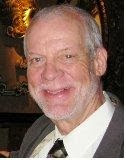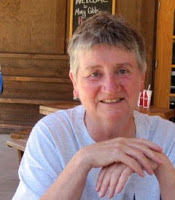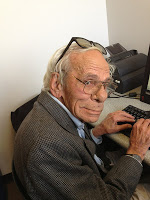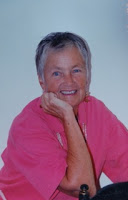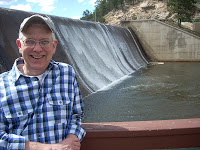I don’t know where to
begin writing about the subject of “lonely places” without first
distinguishing them from “places of solitude”. There’s a distinct difference. People often deliberately seek out places of
solitude for purposes of restoration, deliberation, and soul-searching. They are places of respite and
retrospection. They are for clearing the
mind of clutter, connecting with feelings–sometimes painful–that cry out for
exploration. They are like a shower for
the soul.
begin writing about the subject of “lonely places” without first
distinguishing them from “places of solitude”. There’s a distinct difference. People often deliberately seek out places of
solitude for purposes of restoration, deliberation, and soul-searching. They are places of respite and
retrospection. They are for clearing the
mind of clutter, connecting with feelings–sometimes painful–that cry out for
exploration. They are like a shower for
the soul.
In contrast, “lonely
places” are more like a pity-party for the poor-in-spirit. In the real world, there are places where
solitude-seekers can be alone. They
offer peace and quiet and are a place to get one’s head together and sort
things out. They are far from being
“lonely places” unless made to be so by the individual occupying them. In this entire vast and endlessly varied
world, there is not a single space that is inherently “lonely”, for
“loneliness” is not a physical condition but a state of mind. If I so desired, I could be lonely on a
crowded city bus or at a fair or concert.
places” are more like a pity-party for the poor-in-spirit. In the real world, there are places where
solitude-seekers can be alone. They
offer peace and quiet and are a place to get one’s head together and sort
things out. They are far from being
“lonely places” unless made to be so by the individual occupying them. In this entire vast and endlessly varied
world, there is not a single space that is inherently “lonely”, for
“loneliness” is not a physical condition but a state of mind. If I so desired, I could be lonely on a
crowded city bus or at a fair or concert.
Sometimes, feeling lonely
can feel safer than reaching out to someone.
Loneliness is a trust issue. If I
trust that others can respond to pain with love, there is no need to be lonely. I suspect that people sometimes get stuck in
loneliness because they are afraid of risking rejection should they attempt to
make some kind of human connection. If
one is so needy that they scare people away for fear of saying or doing the
wrong thing, they might well feel that they have been rejected. The solution to this dilemma is to break out
of the loneliness sooner rather than later.
One way to do that is not to pout but to pucker, not to slump or slink
but to sidle up to someone.
can feel safer than reaching out to someone.
Loneliness is a trust issue. If I
trust that others can respond to pain with love, there is no need to be lonely. I suspect that people sometimes get stuck in
loneliness because they are afraid of risking rejection should they attempt to
make some kind of human connection. If
one is so needy that they scare people away for fear of saying or doing the
wrong thing, they might well feel that they have been rejected. The solution to this dilemma is to break out
of the loneliness sooner rather than later.
One way to do that is not to pout but to pucker, not to slump or slink
but to sidle up to someone.
When Laurin died in late
2012, I lost my constant companion and lover.
The pain was almost unbearable. I
could have withdrawn into self-pity and made myself lonely. I am not an extrovert; I’m rather shy,
actually. I do not particularly like
parties or being in large crowds. But I
do crave human connection. I like doing
things for other people. It’s difficult
for me to allow others to do for me. But
that’s exactly what I did. I attended a
grief support group here at The Center and a wellness support group at my
church. I made a concerted effort to
make new friends and freshen older friendships.
I had plenty of time to be alone, especially at night. But I found that simply by being open to the
love and caring of others I had no time or predilection for loneliness.
2012, I lost my constant companion and lover.
The pain was almost unbearable. I
could have withdrawn into self-pity and made myself lonely. I am not an extrovert; I’m rather shy,
actually. I do not particularly like
parties or being in large crowds. But I
do crave human connection. I like doing
things for other people. It’s difficult
for me to allow others to do for me. But
that’s exactly what I did. I attended a
grief support group here at The Center and a wellness support group at my
church. I made a concerted effort to
make new friends and freshen older friendships.
I had plenty of time to be alone, especially at night. But I found that simply by being open to the
love and caring of others I had no time or predilection for loneliness.
Social media of the
electronic variety has made connecting with others easier than ever. I would attribute the nearly pervasive
persistence with which both young and old today text, tweet, and instant
message to a desperate need to circumvent loneliness. I hope its working. But when it comes to feeling truly part of
the human community, there’s nothing like a warm hug–perhaps even topped with
a big, wet kiss.
electronic variety has made connecting with others easier than ever. I would attribute the nearly pervasive
persistence with which both young and old today text, tweet, and instant
message to a desperate need to circumvent loneliness. I hope its working. But when it comes to feeling truly part of
the human community, there’s nothing like a warm hug–perhaps even topped with
a big, wet kiss.
© 11 Aug 2014
About
the Author
the Author
I came to the
beautiful state of Colorado out of my native Kansas by way of Michigan, the
state where I married and I came to the beautiful state of Colorado out of my
native Kansas by way of Michigan, the state where I married and had two
children while working as an engineer for the Ford Motor Company. I was married
to a wonderful woman for 26 happy years and suddenly realized that life was
passing me by. I figured that I should make a change, as our offspring were
basically on their own and I wasn’t getting any younger. Luckily, a very
attractive and personable man just happened to be crossing my path at that
time, so the change-over was both fortuitous and smooth.
beautiful state of Colorado out of my native Kansas by way of Michigan, the
state where I married and I came to the beautiful state of Colorado out of my
native Kansas by way of Michigan, the state where I married and had two
children while working as an engineer for the Ford Motor Company. I was married
to a wonderful woman for 26 happy years and suddenly realized that life was
passing me by. I figured that I should make a change, as our offspring were
basically on their own and I wasn’t getting any younger. Luckily, a very
attractive and personable man just happened to be crossing my path at that
time, so the change-over was both fortuitous and smooth.
Soon after, I
retired and we moved to Denver, my husband’s home town. He passed away after 13
blissful years together in October of 2012. I am left to find a new path to
fulfillment. One possibility is through writing. Thank goodness, the SAGE
Creative Writing Group was there to light the way.
retired and we moved to Denver, my husband’s home town. He passed away after 13
blissful years together in October of 2012. I am left to find a new path to
fulfillment. One possibility is through writing. Thank goodness, the SAGE
Creative Writing Group was there to light the way.
